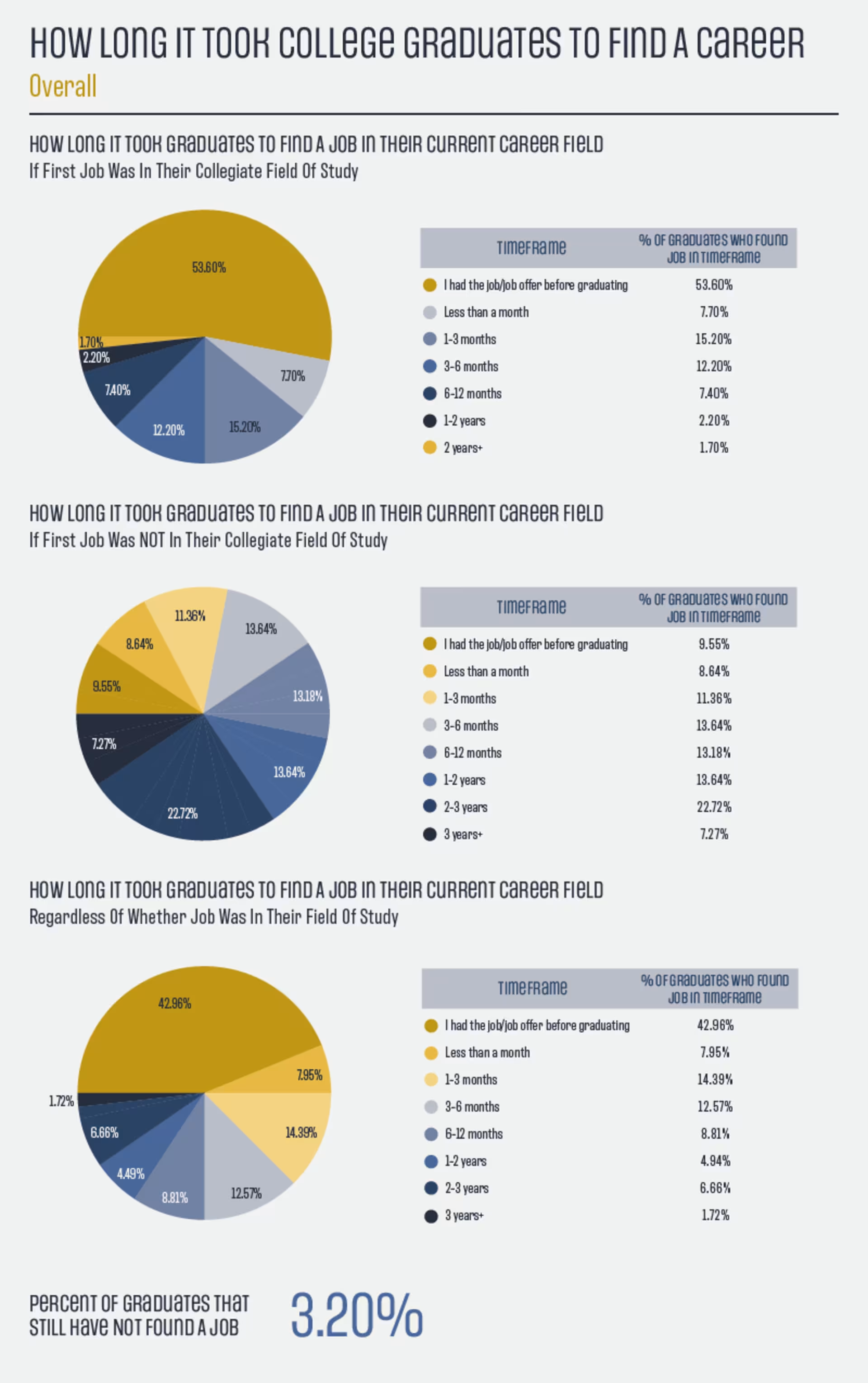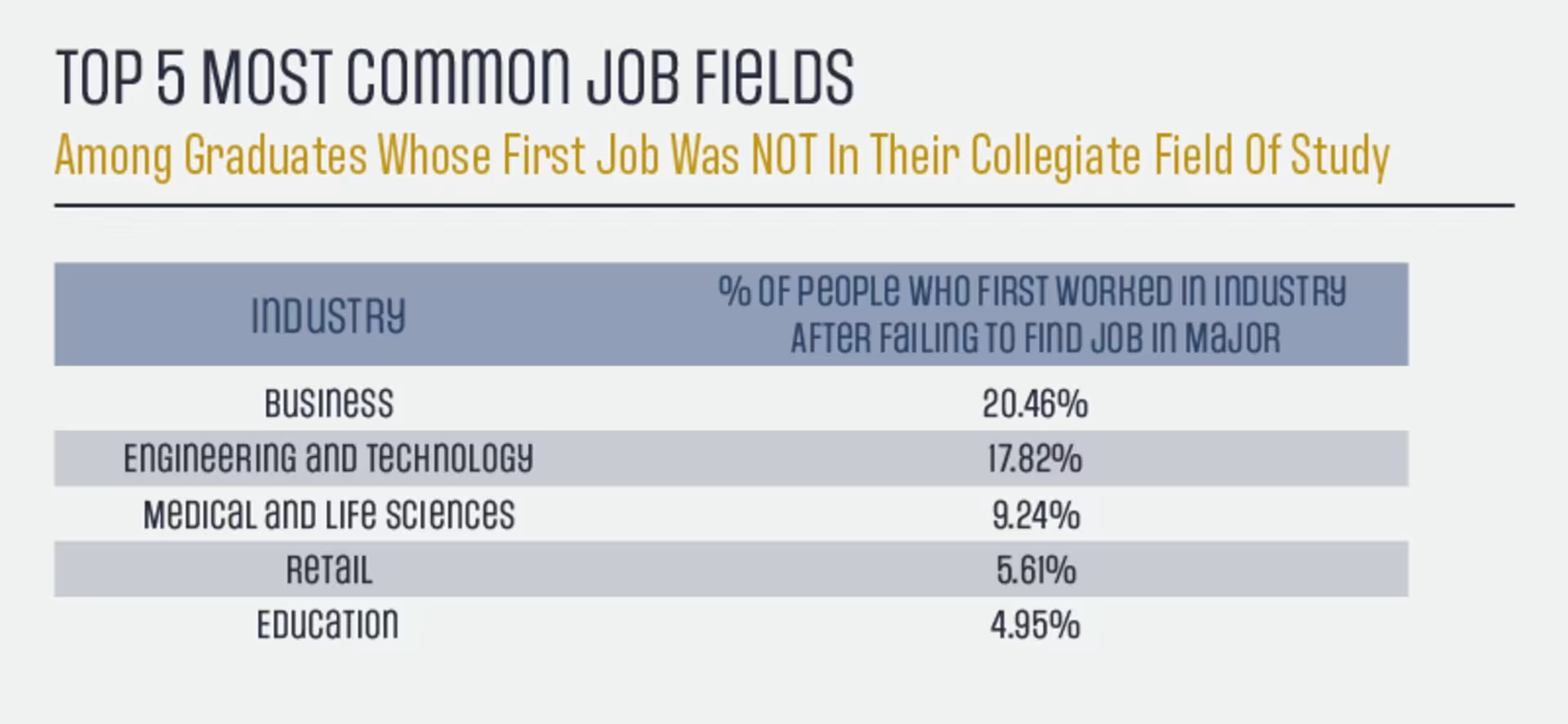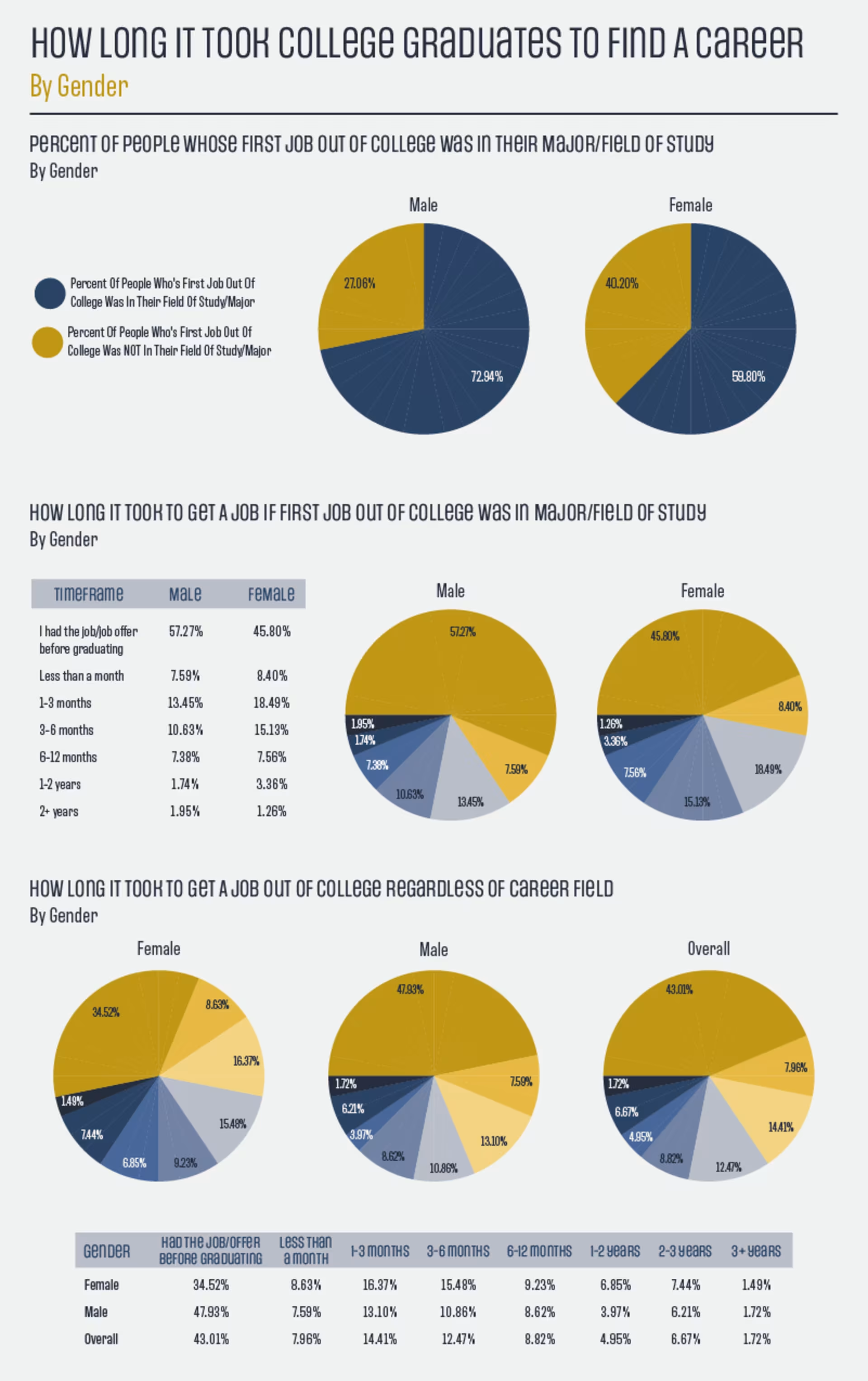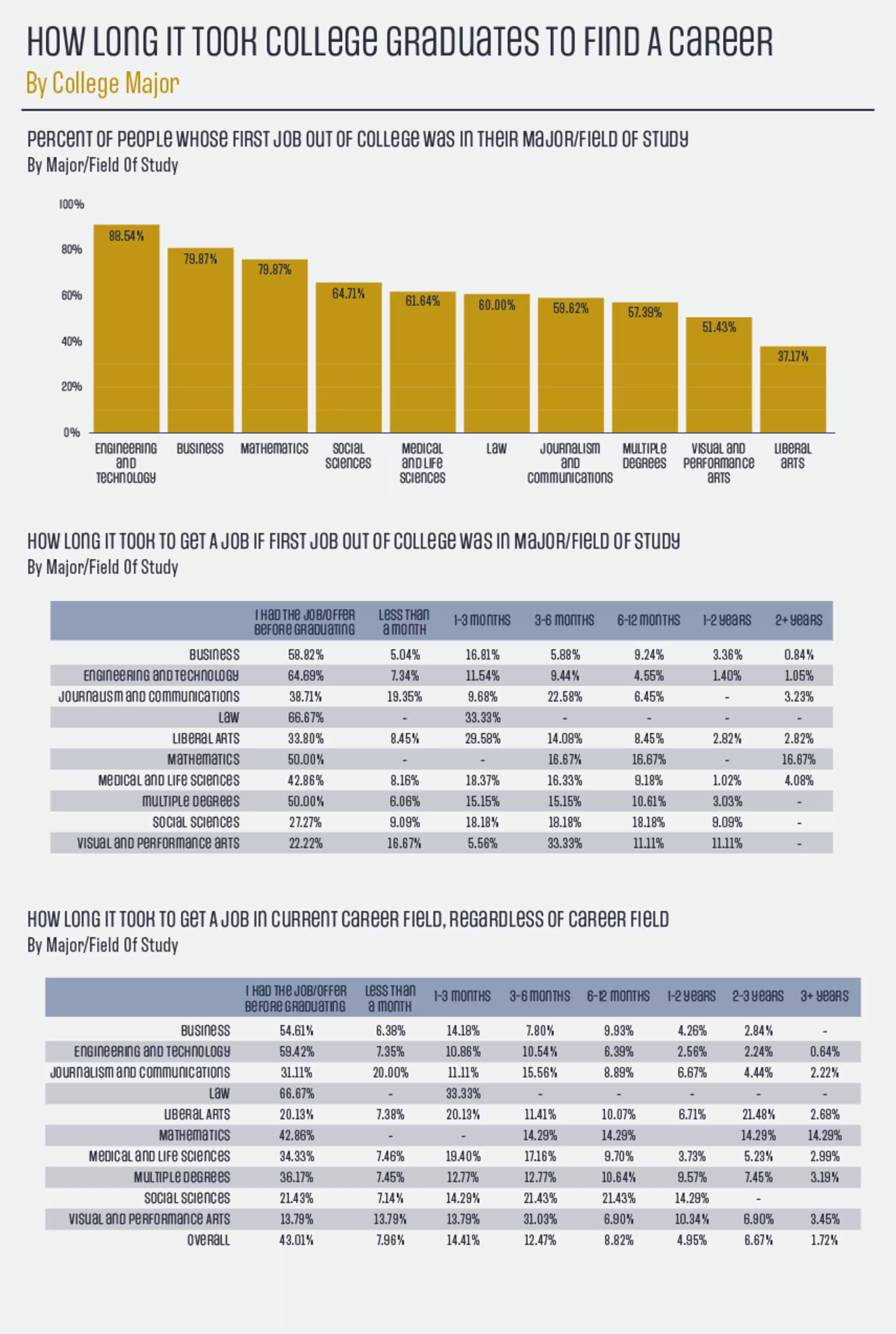Read time 5 minutes
Published on Jan 21, 2020
The stereotypical life plan for young adults in America has essentially stayed the same for the last several decades: graduate high school, go to college, start a career. While the first two steps of that plan are easy enough to carry out, thanks to the wide range of public and private high schools and colleges in this country, the final step of the traditional life plan brings much more uncertainty.
No matter how well-educated someone is in their chosen field, jobs, especially those that require a college education, are never guaranteed. Timing, location, the economy, and so many other factors impact job availability and hiring standards, all of which can make the process of starting a career an imposing prospect.
At Grand Canyon University, we care deeply about the success of our students, both while they are in our classrooms and when they join the workforce. To that point, thinking beyond just GCU students, the University wanted to get a closer look at the general job market for college graduates, specifically how long it takes general college graduates to find a job in their long-term career after graduation. To examine this topic, GCU’s partner, Grand Canyon Education, conducted a survey of over 1,000 college graduates who reside across the country. They asked respondents questions related to the process of finding a career, analyzed and reported the results of their survey below.

We started by looking at more surface-level data, finding out how long it took college graduates to find their first job (if that job was in the same field they studied in college), if their first job was NOT in their field of study, and how long it took to find their first job overall.
One of the most encouraging data points we found is that the majority of graduates surveyed were able to find a job in their field of study. Among those who did, more than 50% had a job offer in hand before walking across the stage to get their diploma. In fact, we found that among those who found their first job in their field of study, nearly 90% had a job in their chosen field within six months of graduating.
Unsurprisingly, graduates who currently work in a field that is different from their college major found it harder to start their careers. Less than 10% of people that description applies to had a job or job offer before graduation, with nearly 30% of these grads taking 2 years or more the begin their long-term careers.

Knowing that some graduates would have to turn to jobs in fields other than what they spent their collegiate careers studying, we also asked people in that demographic to tell us what kinds of jobs they wound up working out of school. More than one in five found a job in the business world despite not holding a business degree, and nearly 18% found work in engineering and technology. Medical work, retail jobs, and education positions round out the list of the top five job types here.

As part of this analysis, we wanted to see how timing and job search success changes for different kinds of people. One of the first things we looked at in this way was the impact gender has on how long it takes people to get their careers started. We found some very eye-opening data in this regard.
First, we found that men are 13% more likely to have a job after college in their chosen field of study. Not only that, we found that when comparing men and women who did succeed in finding an initial job in their chosen field against one another, men are over 12% more likely to have a job offer before leaving college, showing just how much easier it is for male college graduates to find a job both quickly and on their desired career path.

Of course, gender is not the only factor at play when it comes to finding a job. The field a career-seeker studied and wants to pursue plays a major role in the ease of finding a job. Certain jobs have varying levels of demand for workers than others, making it easier or harder for grads to find work in a certain field.
Those who studied Engineering and Technology have the easiest time finding a first job in the same field they studied in college, with over 88% of those grads doing so, nearly ten percent better than the second and third-most successful majors of Business and Mathematics. On the opposite end of the spectrum, only 37% of Liberal Arts graduates are able to find their first jobs in their chosen field.

We also looked at the impact a person’s graduation year has when it comes to the success of their job hunt and found a positive pattern for recent graduates. From 2014 to present there were four different years where over 70% of grads found a first job in the same field they studied in college. Prior to 2014, only two of the years that we gathered reliable data on could boast the same level of success.
This data is encouraging, as it indicates that newer college graduates are finding more success when it comes to starting a career in the field they went to school for. Similarly, the only graduation years where over 60% of college graduates surveyed said they had a job or job offer before graduating were 2018 and 2019, meaning new grads are able to find the jobs they want both more frequently and faster than older grads.

Finally, we looked at how location impacts job searches based on where graduates went to college as well as where they live now. We found that students who went to school in Michigan found jobs in their desired career field at a rate of nearly 93%, the highest in the country. Connecticut was only 5% behind Michiganders, but then there is a drop off of over 12% to the third-place state of Texas.
In terms of states where graduates currently reside, Connecticut comes out on top, with 81.82% of grads who live there finding their first job in the same field they studied in school, just barely edging out Massachusetts and Pennsylvania. A pair of southern states, North Carolina and Georgia, round out the top five in this respect.
A whole new crop of job seekers will be joining the workforce following winter and spring graduations around the country, and we wish each and every one of them success when starting their careers.
Remember, if you are looking to progress in your life towards your dream career, be sure to check out Grand Canyon University where you can find any number of majors and fields of study to help you take that next step!





